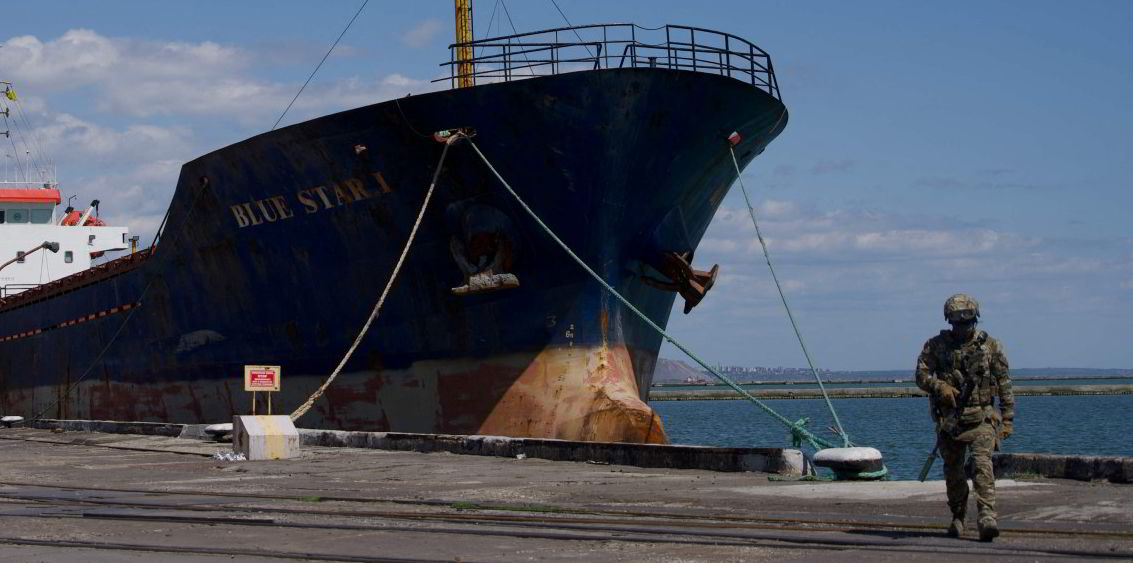Nearly 27,000 Ukrainian refugees had crossed the Greek border as of the middle of May, according to official police figures. More than a quarter of them were minors.
Greek shipping people were the first to help bring them in.
This article is part of our Greece Business Focus, an annual look at what’s happening in the country’s shipping sector as the industry gears up for the Posidonia conference.
Read the full report when it is published on 3 June.
Maritime firms employing Ukrainian seafarers jumped into action, drawing up evacuation plans for crews’ families.
Some were prescient enough to get their people out even before Russia invaded on 24 February.
Greek managers of Swiss firm ABC Maritime arranged everything from mid-January — from accommodation to travel arrangements to Covid testing for Odessa-based employees and their relatives.
Container ship and bulk carrier outfit Technomar welcomed a first group of refugees at its Athens headquarters on a snowy day in early March, treated children to presents and a warm Greek meal of souvlaki.

Others provided charity as well. The Enesel Group donated $1m to the British Red Cross and Unicef to provide humanitarian assistance.
The company also spent $400,000 to support and help relocate 231 Ukrainian seafarers employed on its vessels at the outbreak of the conflict, with their families.
“We felt a humanitarian duty to offer our support via these charitable organisations as well as directly to our affected employees,” group co-principal Filippos Lemos said.
The war struck much closer to home for many Greek shipping firms.
Hellenic bulkers accounted for a considerable part of the 500 seafarers and 84 ships stranded at Ukraine ports.
Several companies managed to evacuate most of their crews. Being Greek helped, as some firms piggybacked on networks set up by their government to extract members of the ethnic Greek community, which has been living by the Black Sea for centuries.
The most financially worrisome problem was insurance. After a crunch of underwriters willing to quote war risk premiums for trapped vessels, some smaller owners howled at requests to pay up to 7% of a ship’s value to insure them for a single week.
“Some people ... obviously smelled blood and [were] trying to take advantage of the situation,” one owner said.
However, soaring war risk premiums are a trifle compared with the long-term upheaval Greek shipping faces in the aftermath of the conflict.
Western sanctions against the Russian energy trade create opportunities but also risks of outsize proportions for Greek owners.
As the war broke out, several European shipping firms and energy players rushed to self-sanction and refused to lift Russian cargoes.
With a few exceptions, Greek peers were not quick to follow.
The share of Greek-controlled tankers shipping oil out of Russian ports rose to 55% of the total from 37% before the invasion, according to Robin Brooks, chief economist of the Institute of International Finance, a global association of the financial industry.
At least three of them switched flags from European Union jurisdictions to Liberia’s.
The EU briefly planned to bar Europeans from carrying Russian oil even into third countries, where such purchases are still legal, but was opposed by maritime member states, such as Greece, Cyprus and Malta.
It was telling that no shipowner group from the continent’s south co-signed a statement by eight European peer associations on 8 April that welcomed current and future EU sanctions against Russia.

A general EU transport ban would just hurt Europe’s thriving shipping industry to the benefit of competitors in Asia and the Middle East, it was argued.
Such arguments cannot be dismissed out of hand.
Perhaps a more judicious use of sanctions as a weapon in the past would have made it possible to wield them more effectively now in the case of Russia, where it really matters.
Unilateral US sanctions have already made it impossible for legitimate Western companies to carry Iranian and Venezuelan crude.
It is hard to see how Greek tanker interests, the world’s biggest, could prosper or even survive if the EU had imposed an additional, extra-territorial, global EU embargo on Russian crude and oil products.
A further factor explaining limited Greek self-sanctioning is that they can pursue Russian business without attracting the flak that usually comes within Western societies.
Being privately held, most Greek companies are not accountable to shareholders and face much less public scrutiny than their listed peers in Oslo or New York.
Greek public opinion and the country’s media also generally pay little attention to their companies’ business dealings abroad.
However, the writing is on the wall. As geopolitical tensions rise, owners fear that free trade will eventually disintegrate into regional blocs, hurting business in the long term.
“It’s a different world now,” one of them said.



